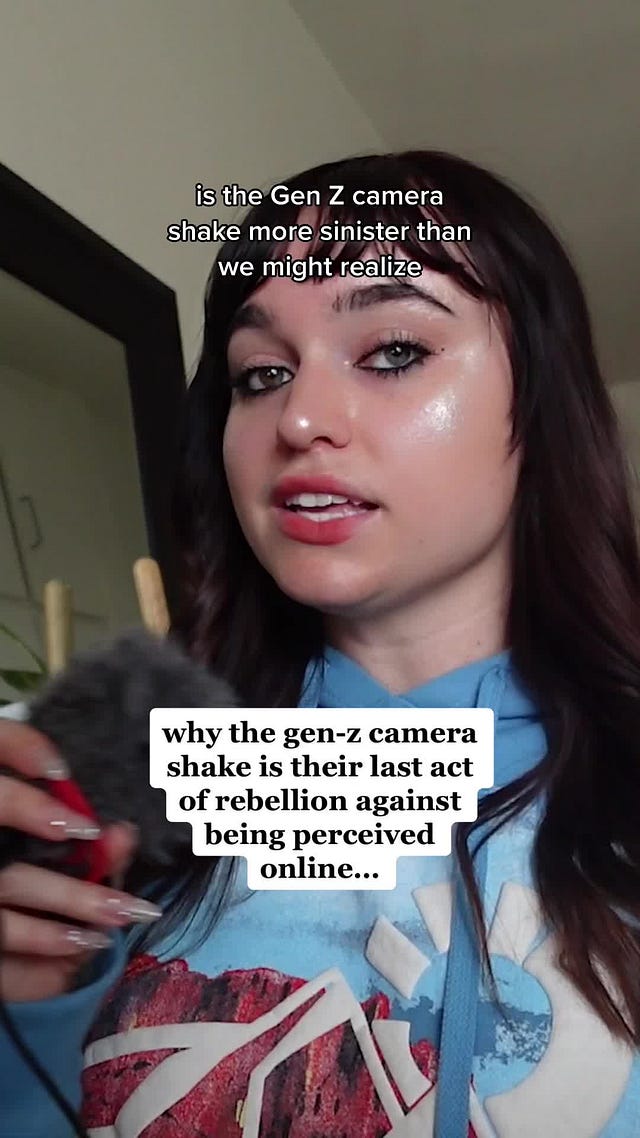The Gen Z shake
The younger, cooler sibling of the “millennial pause.”
Embedded is your essential guide to what’s good on the internet, written by Kate Lindsay and edited by Nick Catucci.
I cannot believe I am willingly wading back into this discourse. —Kate
Six months ago I wrote a piece for The Atlantic about “the millennial pause,” a term the creator @nisipisa coined to describe the split second of dead air millennials inadvertently include at the beginning of front-facing videos because they’re confirming that their phone is recording. I turned this piece into a TikTok that has since received two million views and ruined my notifications forever. Not 15 hours ago, someone commented, “what in the christening hell are you going on about? Are these your real and important thoughts?” This still happens every day.
The weirdest part about writing something that went viral has not been the comments, but stumbling across organic conversations about the thing on my TikTok For You page. Everyone from Hank Green to Emily Ratajkowski has used or acknowledged the term. But now it’s being paired with a brand new generationalism: The Gen Z shake.
“The Gen Z equivalent to the millennial pause is the shake and setting [the phone] down,” a creator named Zaina said in a viral video earlier this month. In other words, many TikTok creators hit record a second too early, when they still appear to be setting up their phone to film.
I’ve noticed other versions of this, like people hitting record before they’ve finished chewing a bite of food so we’re forced to watch them do so before they launch into whatever they were about to say. Like the Gen Z shake, it signals to viewers that the creator was caught in media res—that the thought they needed to share simply couldn’t wait until they put the phone down or swallowed.
Whereas the millennial pause is unintentional—real, even vulnerable—the Gen Z shake is a performance. Both could easily be edited out. The fact that neither are signifies two entirely different relationships with the internet.
The creator Coco Mocoe, who has a great breakdown of the phenomenons, explains them like this: While they are extremely online, millennials grew up interacting with video and social media in a much slower and more purposeful way, taking time out of their lives to make content, rather than living the content 24/7. Gen Z is growing up on frictionless and fast-cycling apps like TikTok, accepting that every moment can be, and often is, perceived online.
Mocoe sees the shake as an act of ironic rebellion. If every moment of one’s life is up for public consumption, you can simply refuse to take that reality seriously. For me, the shake’s value is how it acknowledges the life that’s lived outside of recorded snippets. The person I’m watching doesn’t just exist on a screen—they’re real, and they have to set their phone up like everyone else.
Like the millennial pause, the Gen Z shake does not “matter.” And yet any time someone notes differences between generations, it is greeted with a weird hostility. The millennial pause doesn’t make millennials lame, and the Gen Z shake doesn’t make Gen Z obnoxious. They’re digital anthropological markers that we’re observing amongst ourselves. Isn’t that what the internet is for?





